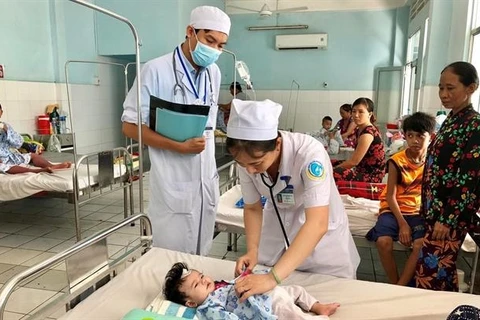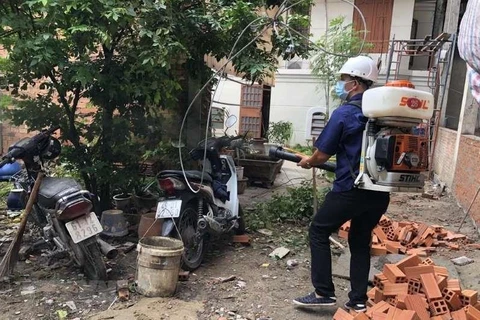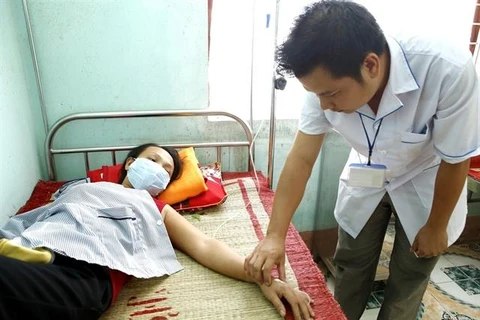Hanoi (VNA) – A regional seminar discussing the satellite-based dengue fever early warning system (D-MOSS) took place in Hanoi on November 18.
It was the first of its kind to discuss how to expand the system from Vietnam to other Asian countries.
Funded by the UK Space Agency's International Partnership Programme, the project is developed by a consortium led by HR Wallingford with partners such as the United Nations Development Programme (UNDP), the World Health Organisation (WHO) and the Vietnamese Health Ministry.
Vice Director of the General Department of Preventive Medicine Dang Quang Tan said the Vietnamese Health Ministry highly values initiative and technical assistance from the project, contributing to the common regional efforts to fight dengue fever.
UNDP Deputy Resident Representative in Vietnam Sitara Syed said the disease outbreak is developing complicatedly with uncertainties due to the impact of climate change, and that is why new tools need to be used to curb its spread.
Running on website platform, D-MOSS could forecast dengue fever outbreak before six months and has been introduced to partners in Bangladesh, Cambodia, Laos, Malaysia, the Philippines, Sri Lanka and Thailand.
Dengue fever is a mosquito-borne and the world’s fastest-spreading disease caused by the virus. It is now present in over 150 countries, about 40 percent of the world’s population, and causes an estimated loss of around 9 billion USD each year. The Southeast Asia and the Western Pacific are the hardest-hit.
In Vietnam, dengue fever morbidity has more than doubled since 2000, affecting 170,000 people and resulted in 38 deaths last year./.
It was the first of its kind to discuss how to expand the system from Vietnam to other Asian countries.
Funded by the UK Space Agency's International Partnership Programme, the project is developed by a consortium led by HR Wallingford with partners such as the United Nations Development Programme (UNDP), the World Health Organisation (WHO) and the Vietnamese Health Ministry.
Vice Director of the General Department of Preventive Medicine Dang Quang Tan said the Vietnamese Health Ministry highly values initiative and technical assistance from the project, contributing to the common regional efforts to fight dengue fever.
UNDP Deputy Resident Representative in Vietnam Sitara Syed said the disease outbreak is developing complicatedly with uncertainties due to the impact of climate change, and that is why new tools need to be used to curb its spread.
Running on website platform, D-MOSS could forecast dengue fever outbreak before six months and has been introduced to partners in Bangladesh, Cambodia, Laos, Malaysia, the Philippines, Sri Lanka and Thailand.
Dengue fever is a mosquito-borne and the world’s fastest-spreading disease caused by the virus. It is now present in over 150 countries, about 40 percent of the world’s population, and causes an estimated loss of around 9 billion USD each year. The Southeast Asia and the Western Pacific are the hardest-hit.
In Vietnam, dengue fever morbidity has more than doubled since 2000, affecting 170,000 people and resulted in 38 deaths last year./.
VNA
























